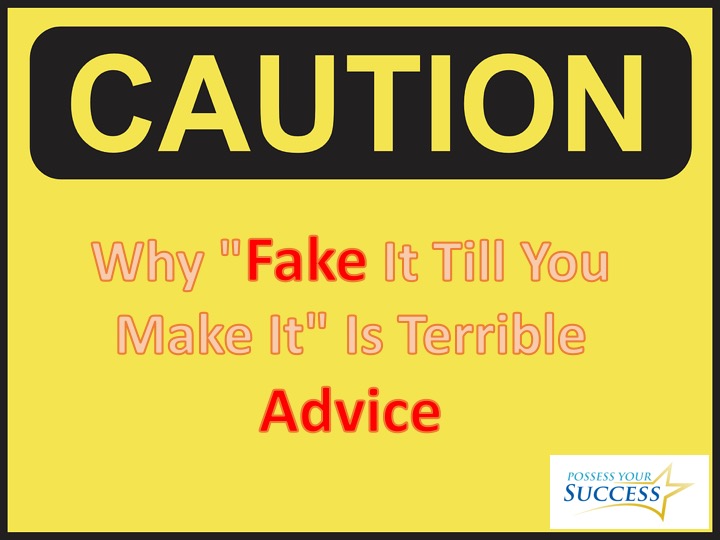Why “Fake It Till You Make It” Is Terrible Advice

Just “fake it till you make it,” they said. “You’ll get it eventually.”
I was starting my first day as a Business Analyst at a major Fortune-500 firm. It was one of my dream jobs at a dream company.
I was so excited, but also scared out of my wits. They wanted me to be the subject-matter expert for an application that I’ve only scratched the surface on!
I turned to a trusted friend for advice, who decided to lay me with the “fake it till you make it” cliche, and it seemed like quality advice so I took it.
Within a year of busting my butt and consistently underperforming, I was looking for a new job.
A lot of people say sometimes you need to “fake it till you make it,” usually when you are taking on a task or role you are either unprepared or feel unqualified for.
However, is that true? Should you pretend you are something that you’re not (in my case, a subject-matter expert) to get ahead?
Absolutely not. Especially if you blatantly know you have no idea what you’re doing.
I never recommend lying to people to get ahead, whether it is on your resume or drumming up new business. It’s shady, dishonest, and usually backfires in a big way.
Example #1: Lying on a Resume. A lot of people will “embellish” on their resume to make it appear more appropriate for the job they’re applying for. And yet others will flat out lie about their experience to get the job, and figure out the details later.
This can backfire in a couple different ways. First, most trained HR professionals can see right through the lies in an interview. Asking the right questions or digging deeper into your job history can signal the right red flags that will doom you. Even if you get the job, there is a huge risk you can crash and burn. There will be a ton of pressure to perform to expectations, causing stress, mistakes, and even costing you your job.
Example #2: Teaching others skills that you don’t have. There are a lot of “coaches”, “teachers”, and “trainers” that claim to be able to do all sorts of things, from making thousands of dollars from home to losing dozens of pounds within a seemingly impossible time frame. If you don’t have the experience to back up your claims, then be honest about that. Anything else is completely unethical, if not fraudulent. Instead, use the ILT method to your coaching success: Invest in the knowledge, actually learn it, and then teach it to others. Otherwise, you’re nothing but a scammer.
“Fake it till you make it” may seem like great advice. However, unless you’re thrown into a situation where you must do so, be sure to avoid it.
And whatever you do, don’t make it standard practice.

